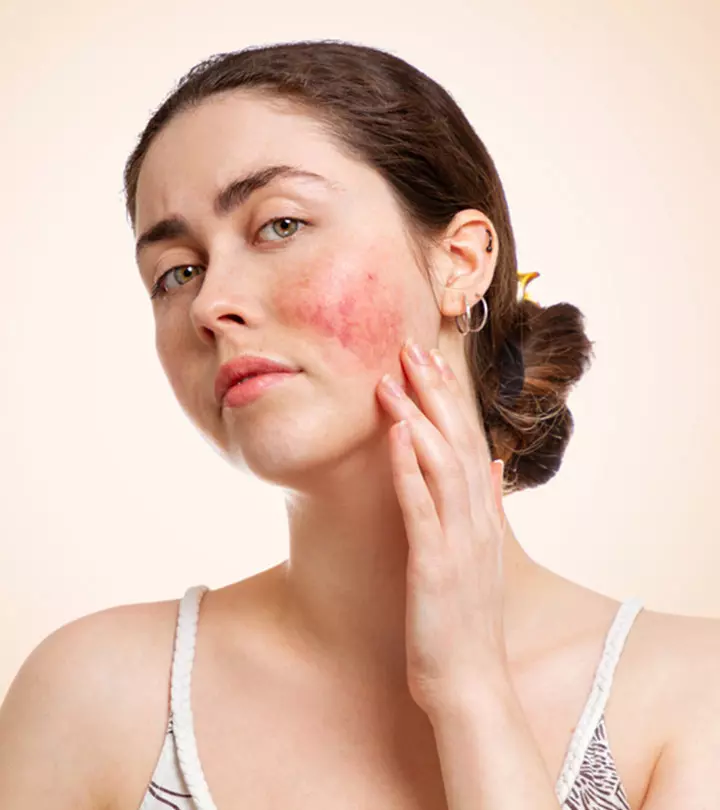How often does your skin experience a rash or reddening? These are all common signs of skin inflammation, and most of us have experienced them at one time or another. Many factors can cause skin inflammation.
Skin inflammation can be caused by your immune system responding to an infection, malfunction, or allergic reaction. This article will cover all aspects of skin inflammation, including signs, symptoms, diagnosis and possible treatments. Continue reading!
What is Skin Inflammation?
Dermatitis is also known for skin inflammation. This is usually a sign that the body’s immune defence system is fighting foreign invaders. Inflamed skin can be inflamed from either an external or internal cause.
Skin inflammation can be reddening skin, rashes and breakouts such as blisters or abscesses. Some cases are mild and only cause pimples or blisters. In others, the skin may quickly become reddened and hot. In some cases, there may be cracks or bleeding.
There are two main types of skin inflammation:
- Acute skin inflammation: This can last up to six weeks and can be caused by sunburns, skin irritations, or allergic reactions.
- Chronic skin inflammation: Chronic inflammation can persist for up to six weeks and sometimes may last for years. It is often associated with eczema or psoriasis, common skin conditions that can cause flare-ups and don’t usually resolve quickly.
We will now discuss the causes of skin inflammation.
What Causes Skin Inflammation?
Multiple factors can cause skin inflammation.
Dysfunctional Immune Systems
Any immune system dysfunction can lead to your immunity cells mistakenly attacking the body’s healthy cells. Psoriasis, a condition where the immune system is overreactive, can lead to skin lesions that are red and patchy.
In certain cases, skin inflammation and chronic inflammatory skin conditions can also be caused by an imbalanced microbiome.
Infection
Other causes of skin inflammation include viral, bacterial, and fungal infections ( 1). The most common infections are
- Bacterial skin infections: Cellulitis, staph infections
- Viral skin infections: Herpes Simplex and Warts
- Fungal infections: Ringworm and athlete’s foot
These are just a few of the many skin conditions linked to yeast in oily skin.
Allergic Reaction
An allergic reaction is when the immune system reacts too strongly to foreign substances and sends cells attacking the invader. Some foods and medications can trigger allergic reactions that cause skin reddening, itching, and inflammation. Contact dermatitis can cause irritation and rashes if your skin comes in contact with poison ivy, poison Oak, perfumes, skin care products or strong chemicals.
Skin inflammation can also be caused by an allergic reaction to certain foods, such as seafood and medicines. People with celiac disease, for example, may ingest gluten-containing foods like wheat. This can lead to skin inflammation known as dermatitis mypetiformis.
Photosensitivity
Photosensitivity is a severe sensitivity to sunlight which can trigger an immune response. Photosensitive reactions can usually be caused by prolonged sunlight exposure and certain medications, such as antibiotics or diuretics.
Sunlight can also cause skin irritation, particularly for people with lupus or other autoimmune diseases. Even with minimal exposure to UV radiation, photosensitive skin can become reddened, burnt, and inflamed.
Injury or Wound
Redness and swelling can be caused by any injury, including cuts, burns, and surgical wounds. The immune system then sends an inflammatory response to heal damaged tissues.
Genetics
Dermatitis and skin inflammation can be caused by genetics. There are higher chances that someone in your family has the same condition as you.
Exposure to Chemicals
Some types of skin inflammation, such as irritant contact dermatitis, can be caused by chemicals and other irritants. Exposure to toothpaste or fluoride in water can cause perioral dermatitis, which is a condition that causes skin inflammation.
Environmental Factors
Your immune system can be affected by various environmental factors that could cause your skin’s protective barrier to become less resilient. This can make your skin drier, which can lead to dermatitis.
Certain air pollutants and tobacco smoke are two possible environmental factors. Possible culprits include fragrances in cosmetics, soap, and skin products.

